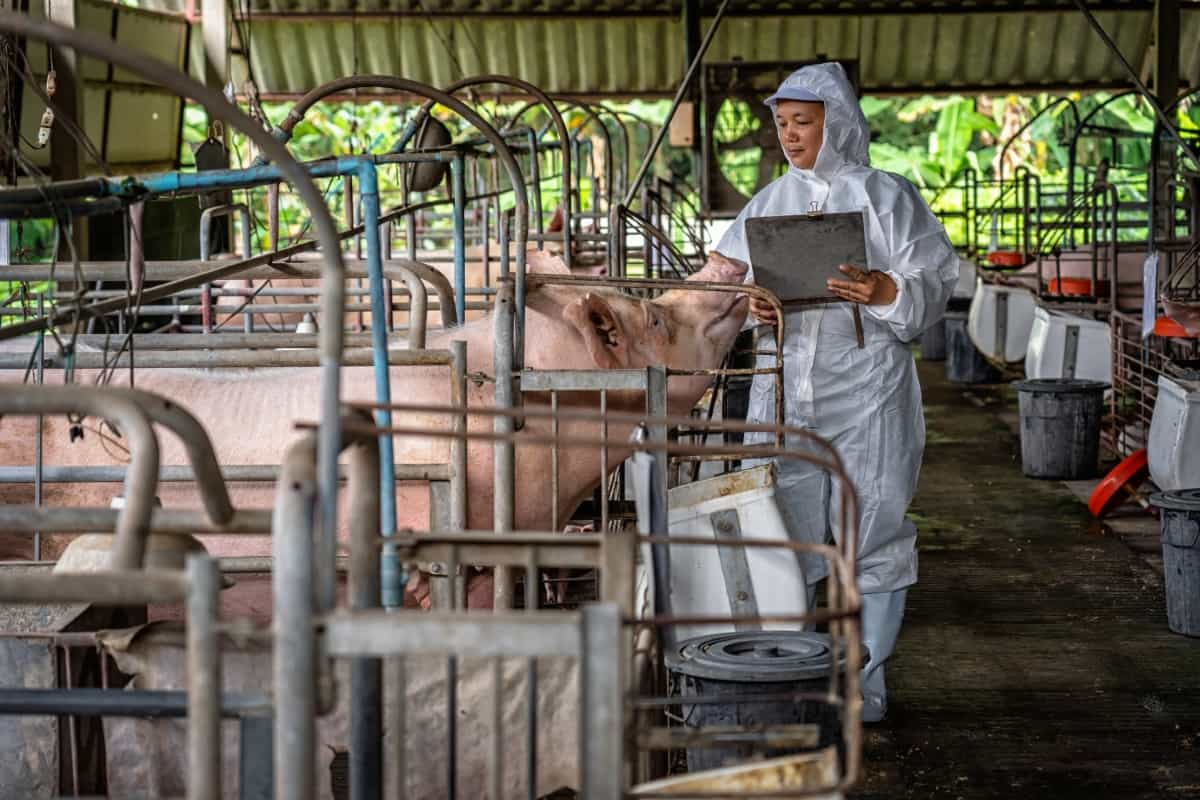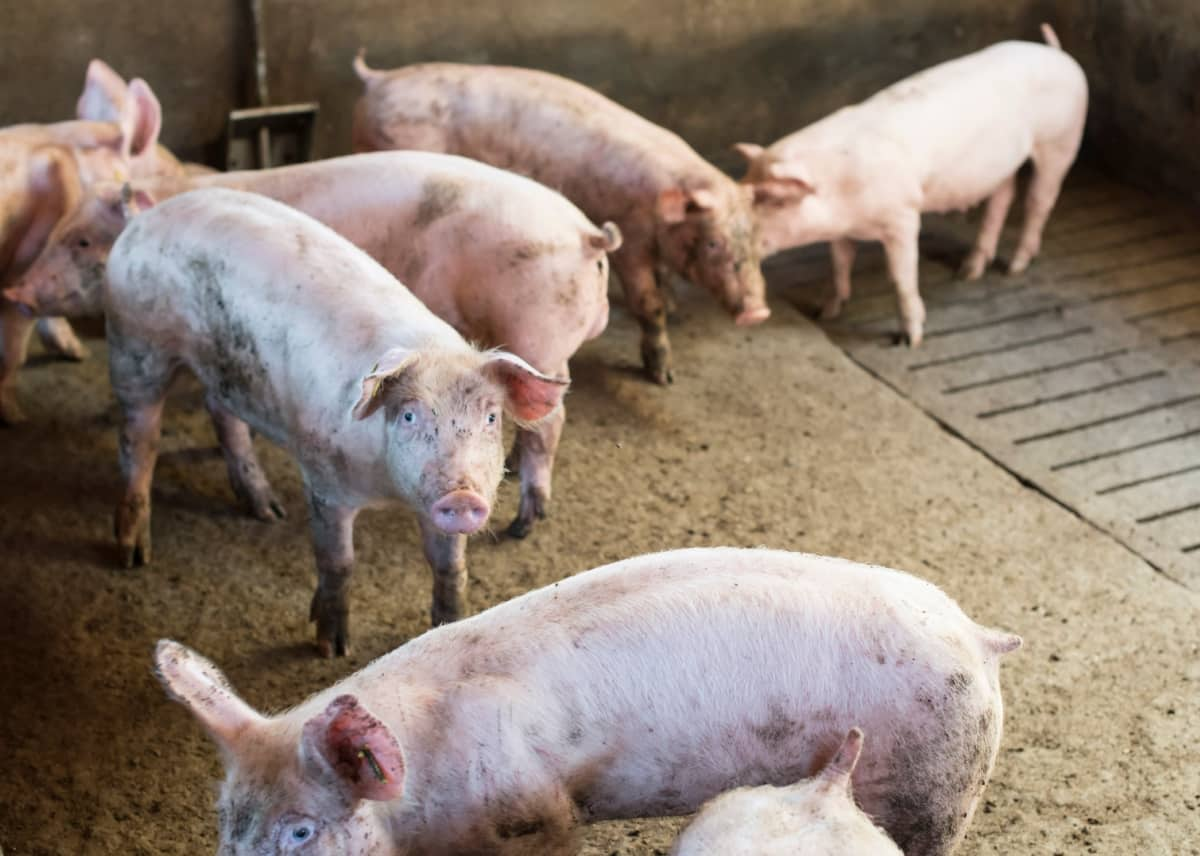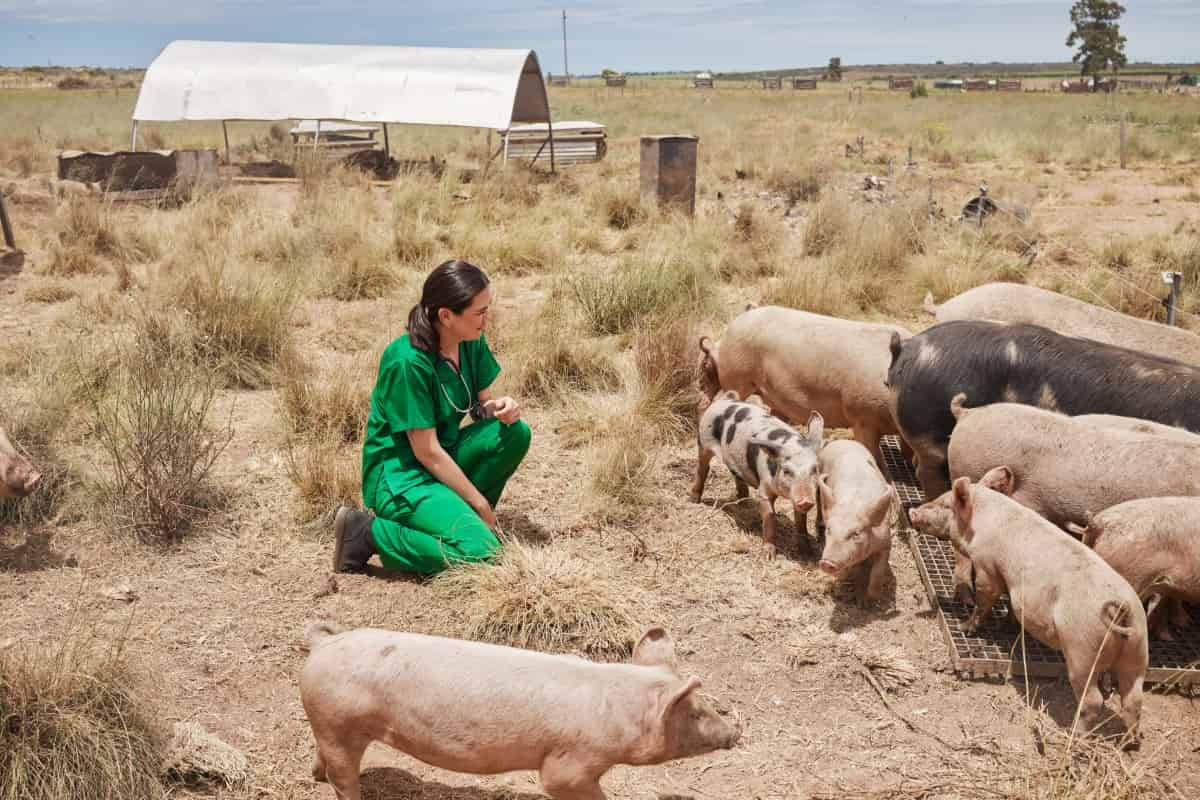This comprehensive guide provides an in-depth exploration of the pig farming business in Canada, highlighting best practices for organic and sustainable operations. It discusses various aspects, including profitable farming techniques, market analysis, regulatory considerations, and innovative technologies shaping the industry. The guide also provides essential insights into starting a pig farming business, making it a valuable resource for aspiring pig farmers and industry enthusiasts alike.

Canada Pig Farming Business Plan
Sustainable Pig Farming Practices in Canada
With its vast arable land and conducive climate, Canada has long been a favorable region for livestock farming. Pig farming has emerged as a viable and lucrative agribusiness among many farming practices. A growing trend in this sector is the shift towards sustainable pig farming practices.
Concerns about environmental degradation, animal welfare, and public health drive the emphasis on sustainability. Canadian farmers adopt strategies such as rotational grazing, natural feeding, and organic farming methods to create a sustainable pig farm. These practices respect the pig’s natural behavior, boost their health, and promote ecosystem regeneration.
Profitable Pig Farming Techniques for Canadian Farmers
To optimize profitability in pig farming, Canadian farmers employ various techniques. These include precision feeding, sound breeding strategies, effective health management, and stress-free housing conditions. Precision feeding helps optimize the pig’s growth and meat quality while minimizing feed costs and environmental impacts.
Choosing the right breed for specific farming conditions, market demands, and meat quality expectations. Implementing health management programs reduces the risk of disease outbreaks and subsequent financial losses. Providing the pigs with a stress-free living environment aligned with their natural behaviors also contributes to their growth and productivity, ultimately leading to higher profits.
Organic Pig Farming Methods in Canada
Organic pig farming is growing in popularity among Canadian farmers due to its potential for profitability and alignment with the rising consumer demand for organic produce. It involves raising pigs on organic feed, free from GMOs, pesticides, and synthetic fertilizers. Organic pigs are reared in an environment that allows them to express their natural behaviors, such as rooting, wallowing, and socializing.
In addition, organic pig farming adheres to strict animal health and welfare standards, eliminating the use of antibiotics and growth hormones. This method of pig farming not only yields healthier and tastier pork but also fosters greater environmental sustainability.
Starting a Pig Farming Business in Canada: Step-By-Step Guide
Starting a pig farming business in Canada involves several steps. First, conducting a comprehensive feasibility study and business plan is essential. This blueprints the farm operations, financial projections, and marketing strategies. Next, securing the necessary permits and licenses for pig farming ensures regulatory compliance.
In case you missed it: Kenya Pig Farming Business Plan: Solid Strategies for High Profits

The third step involves selecting an appropriate site for the farm, considering factors like water availability, waste management systems, and proximity to markets. After this, the farmer should procure high-quality pig breeds, suitable housing, and feeding systems. Regular health checks and vaccinations safeguard pig health. Finally, the marketing of the pigs should be well planned and executed, focusing on reaching the right market segments and achieving competitive pricing.
Raising Heritage Pig Breeds for Niche Markets in Canada
Raising heritage pig breeds is a growing trend among Canadian farmers targeting niche markets. These breeds, including Tamworth, Berkshire, and Large Black, are known for their unique taste and higher fat content. Heritage pigs are typically raised in pastured systems, enhancing their health and flavor profile. Rearing these breeds helps conserve genetic diversity, promote sustainable farming, and meet the growing consumer demand for premium, ethically raised pork.
Financial Considerations for a Pig Farming Business in Canada
Financial considerations for a pig farming business in Canada include initial investment costs, ongoing operational costs, potential revenue, and profitability. Initial investments cover land acquisition, construction of pig housing, purchase of pigs, and feeding and waste management system setup.
Operational costs encompass feed, water, health care, labor, and utility. Farmers must also consider potential income streams, such as selling pigs for meat, breeding purposes, or waste for compost. Understanding these financial aspects is crucial for the sustainability and profitability of the pig farming business.
Pig Farming Regulations and Permits in Canada
In Canada, pig farming is regulated by various federal, provincial, and local authorities to ensure food safety, animal welfare, and environmental sustainability. Key regulations include pig housing, feed quality, waste management, and disease control. Specific permits and licenses are also required to start and operate a pig farm. These may include a business license, land use permits, and environmental permits. Compliance with these regulations and permits is crucial to avoid legal issues and penalties and to maintain the farm’s reputation.
Innovative Technologies in Canadian Pig Farming
The pig farming industry in Canada is increasingly adopting innovative technologies to enhance productivity, sustainability, and animal welfare. Precision farming technologies, like automated feeding and climate control systems, are being implemented to optimize resource use.
Electronic identification systems facilitate better tracking and health management of pigs. Moreover, digital platforms are used for real-time monitoring of pig growth, health status, and environmental conditions. These technological advancements enable farmers to make data-driven decisions, thus improving their farm’s efficiency and profitability.
Implementing Biosecurity Measures in a Canadian Pig Farm
Biosecurity is paramount in pig farming to prevent the introduction and spread of diseases, which could have disastrous impacts on pig health and farm profitability. Canadian pig farmers implement various biosecurity measures, such as controlled access to the farm, regular disinfection of facilities and equipment, quarantine and health checks for new pigs, and proper disposal of dead animals and waste.
In case you missed it: Africa Pig Farming Business Plan: Solid Strategies for High Profits

They also provide training to farm workers on biosecurity protocols. A strong biosecurity program ensures pigs’ health and productivity, protecting the farm business from potential losses due to disease outbreaks.
Managing Pig Health and Disease Prevention in Canada
Managing pig health involves maintaining optimal living conditions, providing balanced nutrition, implementing vaccination programs, and conducting regular health checks. Disease prevention strategies include biosecurity measures, stress reduction, and timely veterinary care. Regular monitoring and early detection of health issues are key to effective disease management. Ensuring pig health enhances their productivity and meat quality and reduces the need for medical interventions, thus saving costs and promoting animal welfare.
- Feed Your Flock for Less: Top 10 Tips to Save on Chicken Feed
- Ultimate Guide to Ossabaw Island Hog: Breeding, Raising, Diet, and Care
- Hatching Answers: The Top 10 Reasons Your Chickens Aren’t Laying Eggs
- Eggs and Economics: Breaking Down the Cost of Raising Backyard Chickens
- Defend Your Greens: Proven Methods to Keep Iguanas Out of Your Garden
- Ultimate Guide to Cinnamon Queen Chicken: A Comprehensive Guide for Beginners
- Ultimate Guide to California Tan Chicken: Breeding, Raising, Diet, Egg-Production and Care
- Ultimate Guide to Marsh Daisy Chicken: Breeding, Raising, Diet, and Care
- 10 Types of Chicken Farming Businesses You Can Start for Profits